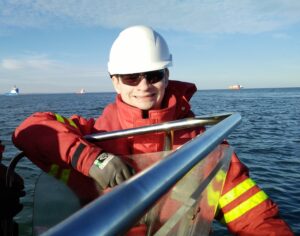
Charity launches survey to explore seafarer neurodiversity

NeurodiversAtSea, the seafarers’ neurodiversity charity, has launched its first annual Neurodiversity Benchmark Survey that aims to gather data in support of a maritime neurodiversity strategy.
Neurodiversity refers to variations in the human brain and cognition and therefore how people perceive or process the world in different ways. In the past, this included ‘labels’ such as autistic and dyslexic, however neurodivergence is now recognised as not in terms of medical labels or disabilities, but as differences.
“The survey is the first of its kind,” explains chair and founder Dan Smith. “It will identify the range and depth of neurodiversity in our profession and the challenges faced by neurodivergent seafarers. Uniquely, it will identify the scope of the opportunity to leverage neurodivergence within the industry.” Smith dubs this ‘the neurodivergent advantage’.
The resulting industry strategy will be published in early 2023 and will be based on a corporate commitment. This will provide an actionable toolkit for employers to harness the benefits of a neurodiverse workforce, including methods and policy for managers, ashore and at sea. Crucially, it will be grounded in evidence and best practices, seeking to develop metrics.
NeurodiversAtSea says that in a leading city institution where neurodiversity strategies are currently well established, the benefits of neurodiverse workforces include nearly 50 per cent higher productivity per neurodivergent worker. It’s also reported that after three to six months, neurodivergent employees were working at speeds typical candidates needed three years to reach, while being more than 50 per cent more productive.
“Neurodiversity means embracing the full spectrum of talent at work,” emphasises co- founder and trustee, James Stockbridge. “Seafarers are incredibly diverse, but our industry still has a huge opportunity both to acquire and develop neurodiverse talent, and to do the right thing by neurodivergent seafarers. Metrics are a first step to realising the neurodivergent advantage, for both seafarers and employers.
“Based on the general population, around 15 per cent of workers are likely to be neurodivergent. When we look at marine industries, jobs are often very specialised, manual or numerate and demand particularly resilient people. For that reason, we think that this may well be an underestimate. The question is, are we doing the right thing by people, and making the most of their talent? That’s what we need to find out. We strongly encourage anyone in the industry to complete the survey, and to share it with colleagues.”
